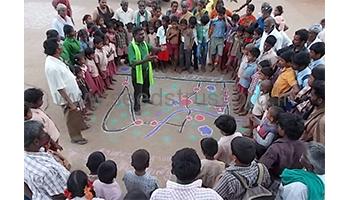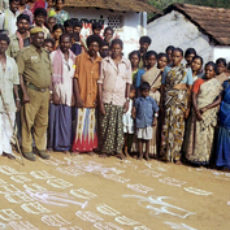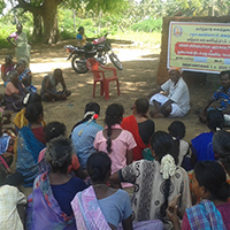TAMILNADU AFFORESTRATION PROGRAMME (TAP)

In order to counter the forest degradation, Joint Forest Management (JFM) was introduced in planning, conservation, afforestration and benefit sharing. Tamilnadu Afforestration Project Phase-I (TAP-I) was implemented at a cost of Rs.688 crores over 8 years from 1997-98 to 2004-05 with a soft loan from Japan Bank for International Co-operation (JBIC).
SEEDS Trust assigned people’s participation by forming Village Forest Councils, Water harvesting through check dams and percolation ponds construction, Technological Thrust by introduction of GIS, Integrated village development by creating Community assets, Growth in employment, Self Help Groups (SHG) formation and Micro-Credit.To consolidate the gains of TAP-I, Tamil Nadu Afforestration Project phase II (TAP II) was initiated from 01.04.2005 with an outlay of Rs.567.42 crores with a soft loan from JBIC. The TAP II will be implemented over a period of 8 years from 2005 -2006 to 2012-2013. The main objectives are to bring about ecological restoration of the degraded forests, to facilitate livelihood improvement of the inhabitants of the project villages by afforestration through Joint Forest Management and to contribute towards poverty reduction in the area. SEEDS Trust involved in social mobilization, awareness creation and institution building.SEEDS Trust was involved in the social mobilization, awareness creation and institution building activities as part of the Tamilnadu Afforestration Project (TAP). SEEDS Trust is undertaking these activities in 12 villages in Dindigul and Karur districts. In all the target villages village forest councils(VFC) were formed and managed by SEEDS Trust. 28 women SHGs were formed in the target villages and provided revolving fund of Rs.24 Lakhs which was utilized by the women members to undertake small income generation activities there by reduction in forest destruction. SEEDS Trust also played a bridge role between forest department and local communities to execute water and soil conservation works in 3000 hectares of forest land and plantation activity of 600000 seedlings in the reserve forest areas in 12 villages.


